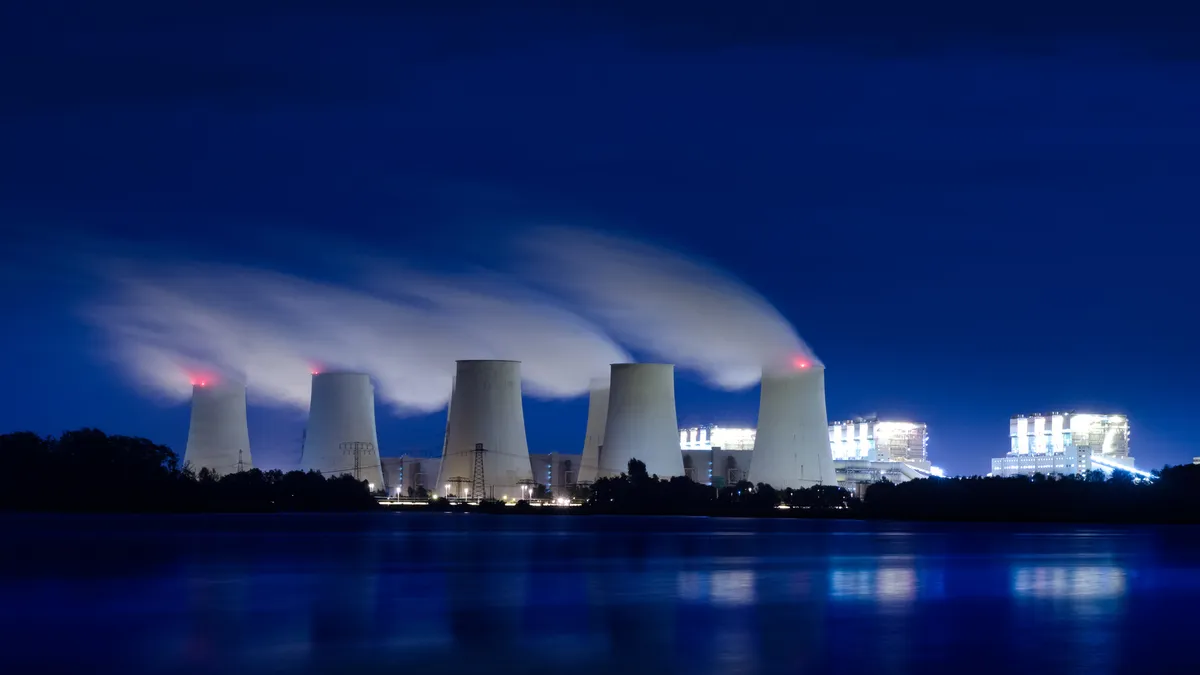Dive Brief:
- A group of engineers in the U.S. Nuclear Regulatory Commission say they have identified a design flaw in nearly all nuclear reactors in the country that should result in their mandatory shutdown unless operators fix the problem, Reuters reports.
- In late February, the engineers petitioned the NRC to order immediate enforcement actions to correct the design flaw, which they say could result in damage to cooling systems and ultimately lead to an emergency situation. The filing asks the agency to respond by March 21 and is a part of a standard NRC process, according to the news outlet.
- The filing stems from an incident in January 2012, when Exelon's Byron 2 unit in Illinois experienced an automatic reactor trip from full power after an undervoltage condition was detected. The unit was shut down for a week, in what is known as an open phase condition created by an unbalanced voltage. The NRC engineers say such an event could cause an electrical short, reducing the abilituy of cooling systems to operate.
Dive Insight:
In a little-noticed public filing, a group engineers from within the NRC are calling for an investigation into the nuclear vulnerability, and why it has not been fixed when the issue has been known since Exelon's 2012 event.
Union of Concerned Scientists nuclear expert Dave Lochbaum told Reuters the agency "snatched defeat from the jaws of victory," with its failure to address the issue after it became known in 2012. And the engineers say there has been at least 13 open phase events over the past 14 years.
Lochbaum said it was a positive sign the engineers filed, indicating no fear of reprisals. But the issue means "something is not right with the safety culture at the agency."
The U.S. nuclear regulator expressed confidence in the safety of its facilities to Reuters.
"This is not a matter of safety significance that merited interruption of the safe operations of our facilities, in 2012 or now," a spokesperson said. The agency will consider the filing under the agency's regular process.
According to a review plan from the agency on Exelon's open phase event, an open phase issue has the potential to go unnoticed for some time.
In Exelon's case, the event involved offsite power circuits "were rendered inoperable due to an open circuit in one phase. ... the condition went undetected for several weeks because offsite power was not aligned to the [engineered safety features] buses during normal operation and the surveillance procedures, which recorded phase-to-phase voltage, did not identify the loss of the single phase."















